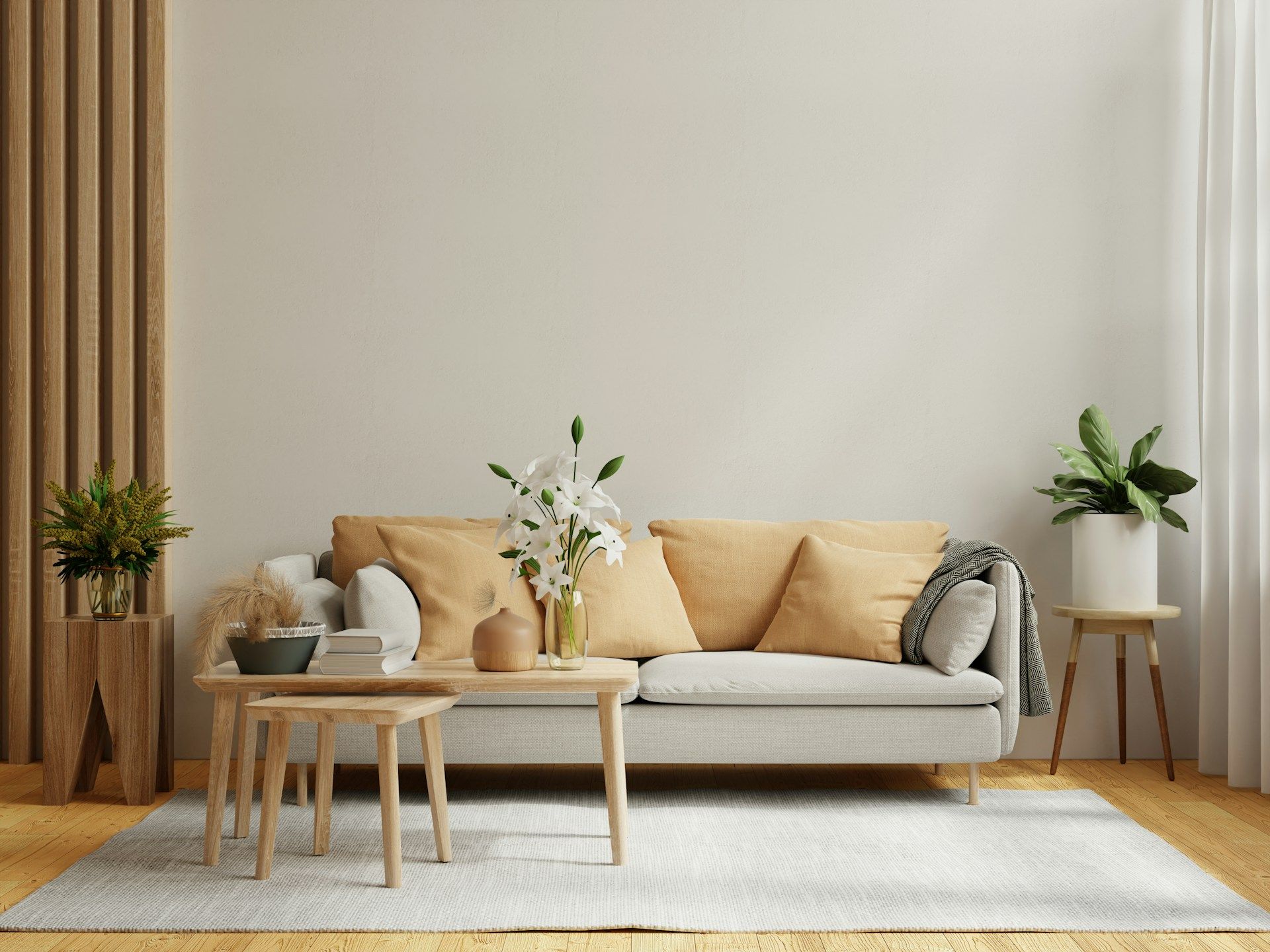What to Do When Your Couch Springs Start Making Noise
Nobody wants to sit down on their couch and hear a loud squeak or creak coming from the cushions. When your couch springs start making noise, it can turn something meant for comfort into something irritating. What starts off as a small sound here and there might slowly turn into a constant source of frustration, making your living room feel less welcoming.
Noisy couch springs usually point to wear and tear inside the furniture that can't be seen. Over time, springs loosen, slip out of place, or scrape against the frame or fabrics. That noise isn’t just a minor annoyance. It often means parts of the couch could be wearing down faster than they should. The good news is there are ways to manage this problem and help keep your couch in better shape for longer.
Find Out Where the Noise Is Coming From
Pinpointing the exact spot where the couch noise is happening is the first step to fixing it. Just because a sound seems to come from one area doesn’t mean that’s where the issue is. Springs inside a couch are often connected, so pressure on one part can make noise in another. Sit in different spots, shift your weight, and press along the cushion surface with your hands to listen for changes in sound.
In many cases, what sounds like squeaky springs might come from another part of the couch. Check underneath to look at the wood or metal frame. Loose screws, broken slats, or warped supports can sound similar to noisy coils. If possible, remove any cushions and use a flashlight to get a better look at the springs and ties under the seating surface.
Aside from the springs and frame, check the padding or lining around the inside of the couch. If the material has worn thin, the springs may be rubbing directly against the inner fabric or other hardware, which can cause that loud squeak. A homeowner in Owensboro recently found that the spring noise on their couch was actually from a cracked support board rubbing the brace just beneath the center cushion.
Here are a few key spots to inspect:
1. Under the couch cushions where you feel support shifting
2. The base of the couch frame near the center support beam
3. Any screw connections or areas where metal meets wood
4. Fabric edges that seem stretched, torn, or worn through
Narrowing down the cause will make it easier to take the next steps without guessing. You don’t need tools yet. This part is just about listening and looking.
Simple Fixes for Loud Couch Springs
Once you've tracked down where the noise is coming from, it's time to work on solving the problem. Sometimes the issue is simple, like a loose screw or a spring that's just slightly bent out of position. Other times, things might be a little more worn out and need extra support or repair.
The fixes vary depending on what you find. Here are a few basic actions to take:
1. Tighten loose screws in the wood or metal frame. Use a screwdriver while applying even pressure
2. Apply furniture-safe lubricant to squeaky springs or joints, but use it sparingly to avoid over-saturating the material
3. Gently adjust any springs that seem stretched or out of line. If they’re completely broken or out of place, it may be time to replace them
If parts of the couch lining or support webbing are torn or coming apart, a partial reupholstering might be necessary. This is especially common in older couches where the frame outlasts the padding. In those cases, the couch might still be worth repairing depending on the overall structure and quality.
Sometimes, repairs just won't be enough. When you see broken planks, heavily rusted springs, or hear new popping sounds each time someone sits down, the damage may be too far gone for small fixes. That's usually a good point to stop patching things up and think about replacing or getting professional help.
Prevent Damage Before It Starts
Once you've tackled the noise, staying ahead of future problems can keep your couch feeling comfortable and solid for much longer. Maintenance doesn’t have to be complicated, and a few small habits can make a big difference in how your couch holds up over time.
Here are a few easy ways to care for your couch and prevent spring noise from returning:
1. Rotate and flip cushions every couple of weeks to help distribute weight evenly across the seating area
2. Check the frame and legs for loosened screws or wobbling once a month, especially if your couch gets a lot of daily use
3. Clean under and behind the cushions to prevent crumbs and debris from getting down to the springs and padding
4. Use felt furniture pads under the legs if the couch sits directly on tile or hardwood. This can reduce impact stress when people sit down
5. Avoid placing all your weight in the same spot constantly. For example, try not to always sit on one end of the couch during movie nights
Keeping an eye on the materials around the spring area also helps. If you notice fabric thinning or padding shifting, those signs usually mean it’s time for a quick check underneath. Catching small wear early is usually a lot easier and less expensive to fix than waiting for something to break completely.
When It's Time to Move On
Sometimes, even the best efforts can’t save a couch from retirement. If the noise keeps coming back or gets worse, or if you notice sagging spots that no longer bounce back, it might be time to think about replacing it. Other red flags include large gaps between cushions and frame, springs poking through the material, or wobbling that doesn't go away even after tightening screws.
When picking out new couches in Owensboro, take a close look at what's inside, not just how it looks on the outside. Quality springs and a solid frame will give you longer-lasting comfort. Materials like kiln-dried hardwood and high-density foam also tend to support better structure. Test the couch by sitting in different spots and listening for any creaks, rattles, or odd movements before making a decision.
One customer shared that their old couch had sentimental value, but the internal damage made every sit a chore. After finally replacing it with a well-built latex-cushion model, the living room instantly became a more relaxing place to unwind. That one change made their space more welcoming and easier to enjoy day to day.
Replacing a couch is a big choice, but comfort and peace of mind are worth it. When your furniture supports your lifestyle instead of working against you, it sets the tone for the whole room and that’s something worth holding onto.
Creating a Living Room That Works for You
Fixing noisy couch springs is usually doable, especially when you catch the problem early. From tightening loose hardware to adding support where it’s needed, small actions can stretch out the life of your couch. And if it turns out the damage is beyond repairs, getting a quality replacement can bring back comfort and peace in your living space.
Staying on top of maintenance makes it easier to enjoy your home without the distraction of constant creaks or squeaks. Whether you’re making small fixes or exploring a brand-new piece, it’s all about creating a space that feels good every time you sit down.
If you're dealing with squeaky springs or looking to upgrade your living room seating, Owensboro Furniture can help you find the right solution. Explore our selection of
couches in Owensboro to bring lasting comfort and style into your home.



